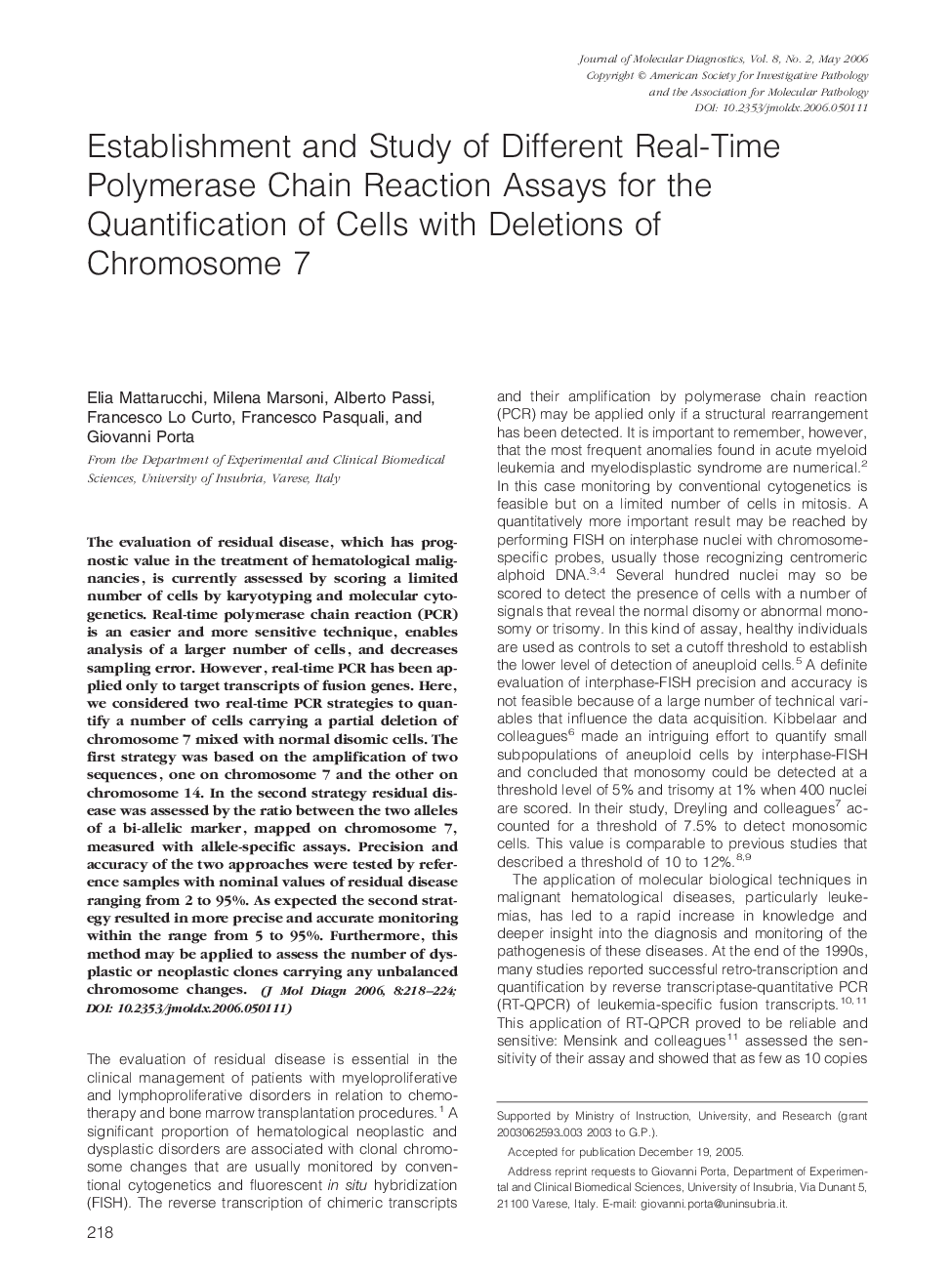| کد مقاله | کد نشریه | سال انتشار | مقاله انگلیسی | نسخه تمام متن |
|---|---|---|---|---|
| 3328032 | 1590646 | 2006 | 7 صفحه PDF | دانلود رایگان |

The evaluation of residual disease, which has prognostic value in the treatment of hematological malignancies, is currently assessed by scoring a limited number of cells by karyotyping and molecular cytogenetics. Real-time polymerase chain reaction (PCR) is an easier and more sensitive technique, enables analysis of a larger number of cells, and decreases sampling error. However, real-time PCR has been applied only to target transcripts of fusion genes. Here, we considered two real-time PCR strategies to quantify a number of cells carrying a partial deletion of chromosome 7 mixed with normal disomic cells. The first strategy was based on the amplification of two sequences, one on chromosome 7 and the other on chromosome 14. In the second strategy residual disease was assessed by the ratio between the two alleles of a bi-allelic marker, mapped on chromosome 7, measured with allele-specific assays. Precision and accuracy of the two approaches were tested by reference samples with nominal values of residual disease ranging from 2 to 95%. As expected the second strategy resulted in more precise and accurate monitoring within the range from 5 to 95%. Furthermore, this method may be applied to assess the number of dysplastic or neoplastic clones carrying any unbalanced chromosome changes.
Journal: The Journal of Molecular Diagnostics - Volume 8, Issue 2, May 2006, Pages 218–224